Over 87% of students know about AI
At the recent workshop on developing artificial intelligence capacity for learners organized by the University of Social Sciences and Humanities (Vietnam National University, Hanoi) in collaboration with other organizations, Prof. Dr. Le Anh Vinh, Director of the Vietnam Institute of Educational Sciences ( Ministry of Education and Training ), said that the institute conducted a survey of 11,279 Vietnamese secondary school students on their readiness for AI. The results showed that over 87% of students knew about AI; over 62% of students applied AI to support personalized learning; over 43% used AI to automatically grade their papers; nearly 52% used AI as a virtual assistant to help solve exercises, especially difficult exercises. Of the over 34,000 teachers surveyed, 76% had used AI in teaching.
According to Professor Le Anh Vinh, AI is being used in schools from teachers to students. So how can AI really be effective in the educational environment? Professor Le Anh Vinh believes that the implementation of AI in general education needs to be based on three main pillars: a consistent policy framework, ensuring ethics, data security and long-term orientation; a comprehensive, flexible curriculum and learning materials, suitable for classroom practice and regularly updated; human and financial resources, especially teacher training to convert technology into learning values.
Since 2024, the Vietnam Institute of Educational Sciences has organized the development of an AI curriculum in general education, from which schools can develop regulations for AI application. Currently, the AI competency framework for high school students and teachers has been assessed by the Department of General Education (Ministry of Education and Training) and will soon be implemented.
Associate Professor Dr. Hoang Minh Son, Director of Hanoi National University, said that in the development strategy to 2030, with a vision to 2045, the University aims to build a comprehensive AI ecosystem. Not only in technology industries, AI is being and will be strongly applied in social sciences, humanities, economics, law, education, etc., thereby promoting knowledge innovation, reshaping the way people learn, research and create, towards a smart, humane and sustainable education. Therefore, Hanoi National University advocates developing AI capacity as a fundamental capacity of learners in the digital age, similar to language capacity, critical thinking and creativity.
However, Mr. Son affirmed, we need synchronous policies, public-private partnership models, and especially the participation of the scientific community, businesses, and society to build a national AI capacity framework that is practical, feasible, and suitable for Vietnam's conditions.

Prof. Dr. Hoang Anh Tuan, Rector of the University of Social Sciences and Humanities, said that in the past two years, the school has implemented many pioneering activities such as building an AI competency framework for learners, in conjunction with UNESCO and international recommendations. Developing training modules on AI in teaching, research and career, targeting students in the fields of Social Sciences and Humanities.
Need legal corridor, AI training roadmap
Talking to reporters, the principal of a secondary school in Hanoi frankly asked the question: How to bring AI into schools, teachers, and funding? Currently, the implementation of 2-session/day learning has become a policy but still faces many difficulties and obstacles. According to this person's calculation, to meet the requirements of the industry for teaching 2 sessions, the school needs at least 10 teachers (these teachers are responsible for teaching excellent students and teaching weak students without charging fees). If AI content is added, the management agency must consider the budget and implementation team.
According to Ms. Nguyen Thi Nhiep, Principal of Chu Van An High School for the Gifted (Hanoi), observing in Hanoi and some provinces, one can see a clear differentiation, some schools do not care, some schools invest heavily. In particular, this differentiation is clearly shown between schools in urban and rural areas, between public and private schools, in which many private schools have very good training organization methods. According to Ms. Nhiep, the school wants to bring AI into training, can even allocate budget to organize but is stuck with regulations on extra teaching and learning. So what is the basis for the school to teach? Why is it allowed to collect money?
From the above difficulties, Ms. Nhiep proposed that there should be a legal corridor, goals, and roadmap for students, teachers, and schools to apply and develop AI in teaching and learning. Teacher training and infrastructure are also decisive factors for schools when implementing.

Professor Le Anh Vinh, Director of the Vietnam Institute of Educational Sciences, said that the implementation of AI in general education needs to be based on three main pillars: a consistent policy framework, ensuring ethics, data security and long-term orientation; a comprehensive, flexible curriculum and learning materials, suitable for classroom practices and regularly updated; human and financial resources, especially teacher training to convert technology into learning values.
Dr. To Hong Nam, Deputy Director of the Department of Science, Technology and Information (Ministry of Education and Training) pointed out many challenges. Currently, learners mainly self-study AI through friends, social networks or online courses but lack a quality verification mechanism. Many people "claim to be AI teachers" but have no expertise, making students not know their level and what is enough to learn. Mr. Nam affirmed that there needs to be a unified assessment, recognition and standardization system to ensure the quality of AI training.
Dr. Le Linh Luong, Deputy Director of the Institute of Blockchain Technology and AI, Vietnam Blockchain and Digital Asset Association, informed that in the US, only 34% of primary school teachers, 45% of secondary school teachers, and 46% of high school teachers feel competent to teach AI. The reason is the lack of teacher training programs on AI tools, ethics, and student assessment. This gap reflects the common challenge of many countries, with AI ahead of teacher training capacity.
Dr. Linh Luong suggested that Vietnam needs to train a core team of teachers before mass deployment. He also proposed a 3-tier AI capacity model for Vietnam: general awareness; professional application; research and development, where engineers and scientists master the “Make in Vietnam” model and products.
Professor Le Anh Vinh, Director of the Vietnam Institute of Educational Sciences, said that the Ministry of Education and Training is researching options for integrating AI into high school to avoid overlap. To implement it into the high school curriculum, there are three directions: integrating AI completely into subjects; considering AI as part of the computer science subject; and keeping AI as an independent subject. “Our view is that AI should be integrated into high school subjects to avoid overlap. The approach must be step-by-step, clear, and have research evaluation for timely implementation,” Mr. Le Anh Vinh shared.
Survey results from the Vietnam Institute of Educational Sciences show that over 87% of students know about AI; over 62% of students apply AI to support personalized learning; over 43% use AI for automatic grading; nearly 52% use AI as a virtual assistant to help solve exercises.
The AI program is being piloted by the Vietnam Institute of Educational Sciences from grades 1 to 12 at experimental schools, with 16 teaching periods per school year. Experts say that at the primary level, the focus is on ethics education and awareness of AI; at higher levels, the content of knowledge and technical skills will gradually increase. Initial results show that teachers can completely teach content on ethics and safe use of AI, if there are appropriate guidance documents.
On the contrary, the fundamental knowledge and AI techniques are a big challenge, because most teachers do not have technological expertise. Therefore, the Institute is proposing to standardize and digitize learning materials, so that teachers play a supporting role instead of direct teaching.

The Ministry of Education and Training plans to make AI an official subject.

AI - a double-edged sword
Source: https://tienphong.vn/truong-hoc-loay-hoay-truoc-lan-song-ai-post1791597.tpo


![[Photo] Da Nang: Water gradually recedes, local authorities take advantage of the cleanup](https://vphoto.vietnam.vn/thumb/1200x675/vietnam/resource/IMAGE/2025/10/31/1761897188943_ndo_tr_2-jpg.webp)




![[Photo] Prime Minister Pham Minh Chinh attends the 5th National Press Awards Ceremony on preventing and combating corruption, waste and negativity](https://vphoto.vietnam.vn/thumb/1200x675/vietnam/resource/IMAGE/2025/10/31/1761881588160_dsc-8359-jpg.webp)


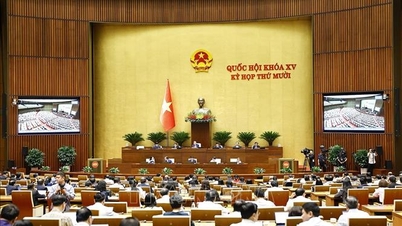

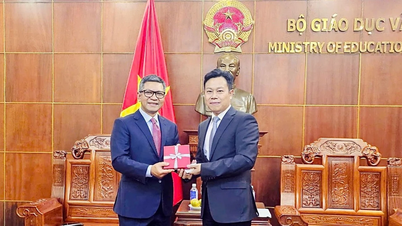




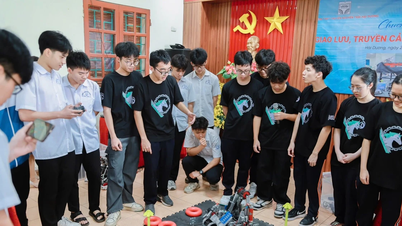





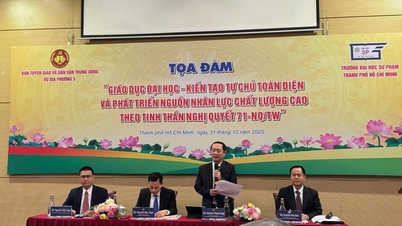

































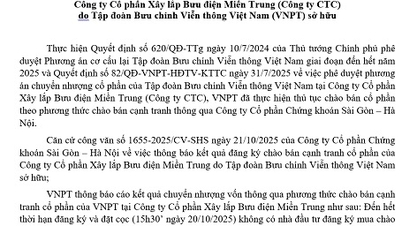
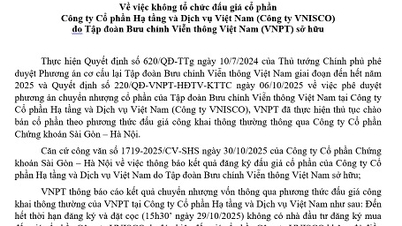
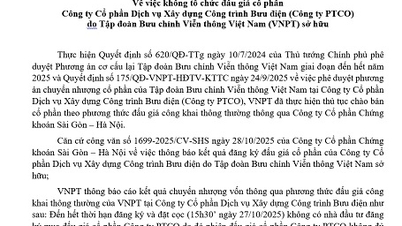
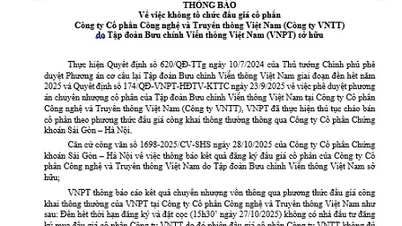








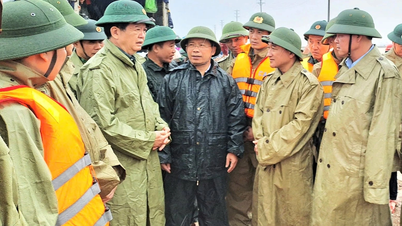

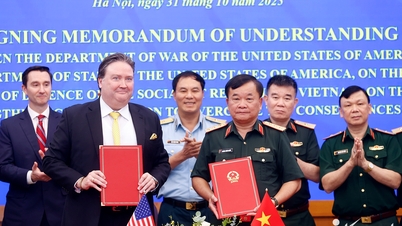





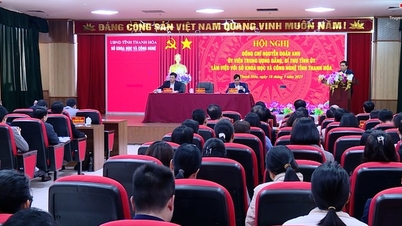
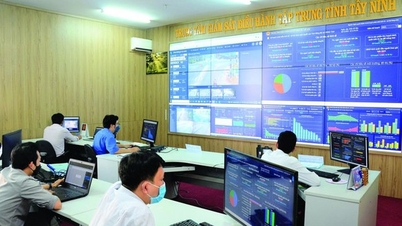










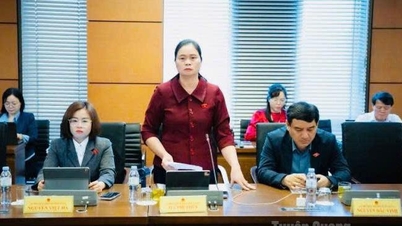



















Comment (0)